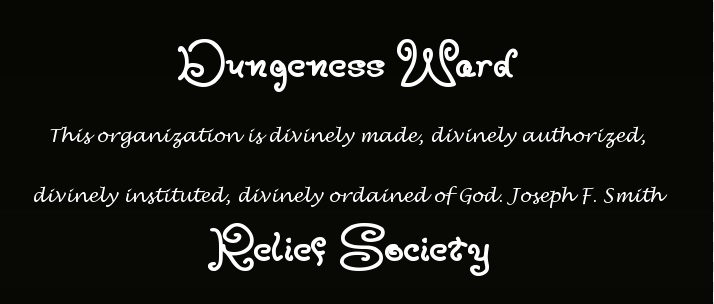Our guest teacher this week, Valerie Shaw, gave an excellent lesson from chapter 12 of our Gospel Principles book, entitled "The Atonement."
Sis. Shaw showed us a little gadget off of a piece of machinery. Finally we figured out that it was a gas filter off an old tractor. She then asked us to explain how it works. When we couldn't, she asked us if we thought it was possible that we could know what something is but not know what it does exactly. She then showed us the owner's manual. The instructions were there, but not extremely easy for us to understand. What a great metaphor for the Atonement! Elder Richard G. Scott of the Quorum of the Twelve has said; "I believe that no matter how diligently you try, you cannot with your human mind fully comprehend the eternal significance of the Atonement nor fully understand how it was accomplished. We can only appreciate in the smallest measure what it cost the Savior in pain, anguish, and suffering or how difficult it was for our Father in Heaven to see His Son experience the incomparable challenge of His Atonement. Even so, you should conscientiously study the Atonement to understand it as well as you can. You can learn what is needful to live His commandments, to enjoy peace and happiness in mortal life. You can qualify, with obedient family members, to live with Him and your Father in Heaven forever."
Sis. Shaw then told us a story from her teen years. She told us that her father had told her once that if her car was not working correctly that she needed to get under the car and tap on the gas filter. One night her car started acting up, so she pulled over and did as her Dad had taught her. Did she know how it worked? No. Did she understand the mechanics of it? No. Did she just know that her Father had given her instructions and she should trust in his words? Yes. The Atonement works the same way. We don't understand the mechanics of Christ's sacrifice, we can't comprehend how it all works, but we have the Father's guidance, and an "owner's manual" (The Book of Mormon.) A lot of what we as Latter-day Saints understand about the Atonement, we have learned from the Book of Mormon. Elder Jeffrey R. Holland of the Quorum of the Twelve has said that Christ and the Atonement constitutes the principal theme of the Book of Mormon. Then, quoting Joseph Smith, he said; "all things which pertain to our religion are only appendages to the Atonement of Jesus Christ."
The Atonement is the most important event that has ever occurred in the history of mankind. Because the Fall of Adam brought not only physical death, but spiritual death into the world, the Atonement of Christ was necessary in order for us to be able to live again with our Heavenly Father. Without the Atonement, our spirits and bodies would be separated permanently from each other. Our wise and loving Heavenly Father prepared a wonderful merciful plan to save us from both physical and spiritual death. By providing us a Savior, we can be ransomed from our sins and from death.
Because Christ is literally the only Begotten son of our Father in Heaven, He is the only person who could atone for our sins. Because He has an immortal Father, He is the only one who had power over death. Christ atoned for our sins not just by dying, but also through the pain he suffered in the garden of Gethsemane. We can not comprehend the weight He bore, causing Him to bleed from every pore. What love He has for each of us to not only endure such pain, but to do it willingly, knowing He could make it stop at any moment. The Savior tells us, "For behold, I, God, have suffered these things for all, that they might not suffer...even as I." (D&C 19:16-17.)
A parable told by President Boyd K. Packer of the Council of the Twelve about mercy and justice illustrates why it is necessary that Christ act as our mediator in order to fulfill both the law of mercy and that of justice. (Ensign May 1977, 54-55.)
How can we show gratitude for the gift of the Atonement? Dede B.

No comments:
Post a Comment
Note: Only a member of this blog may post a comment.